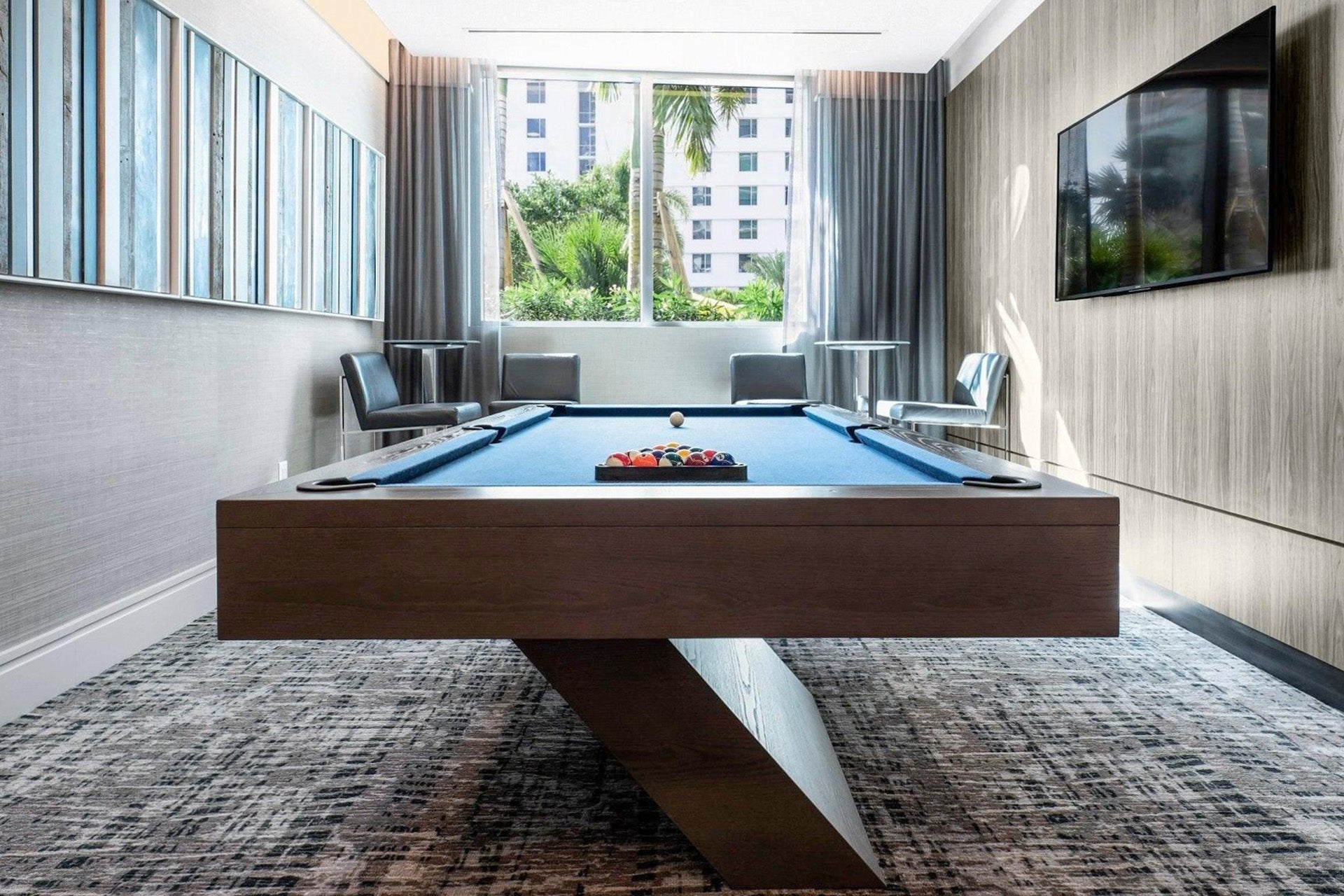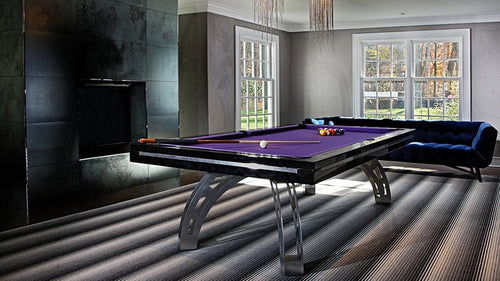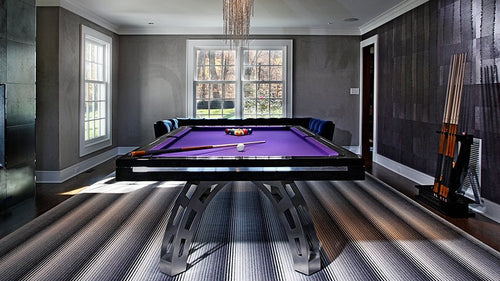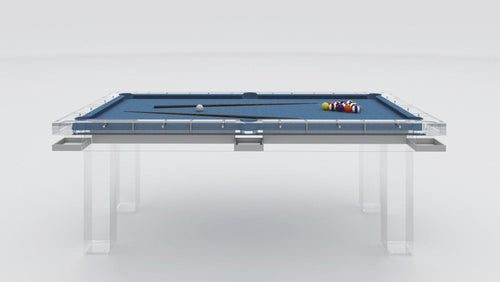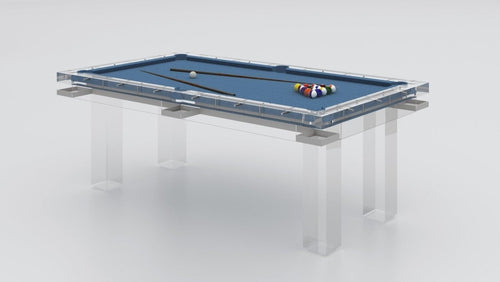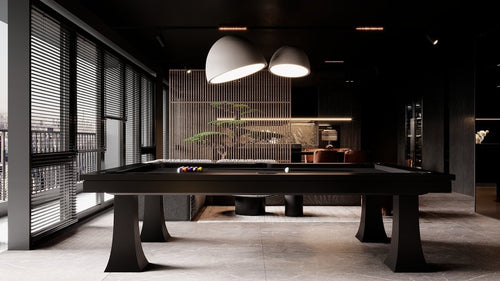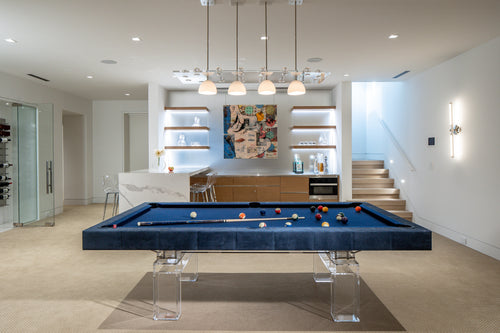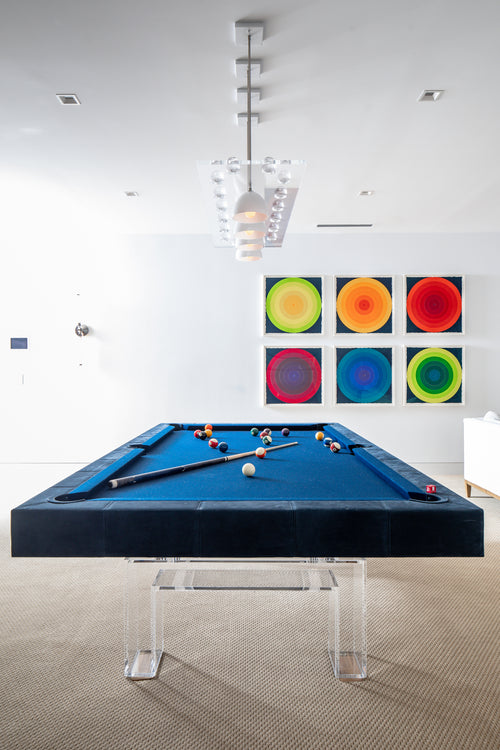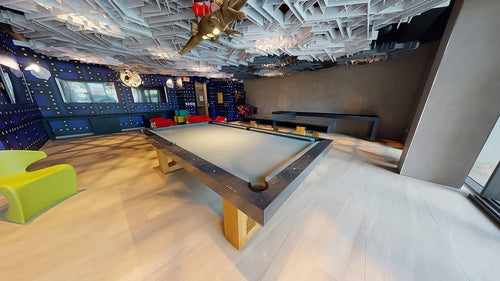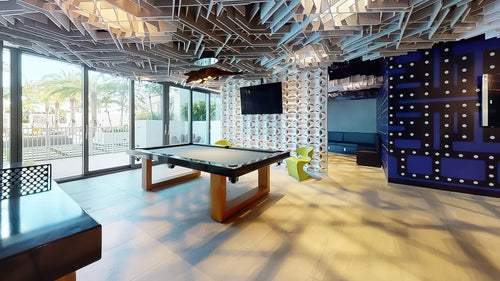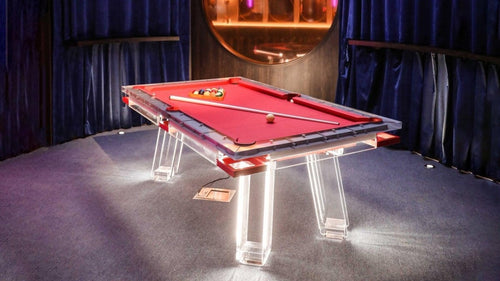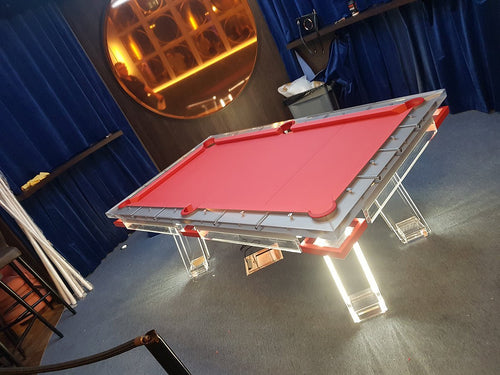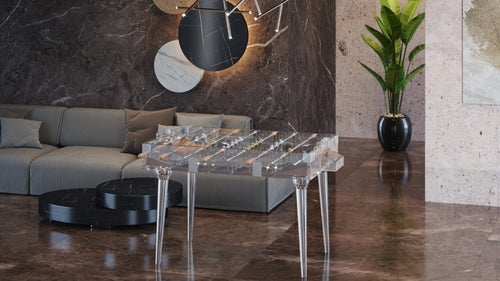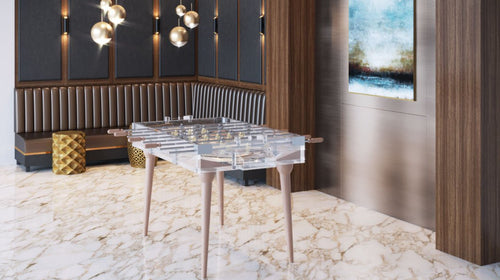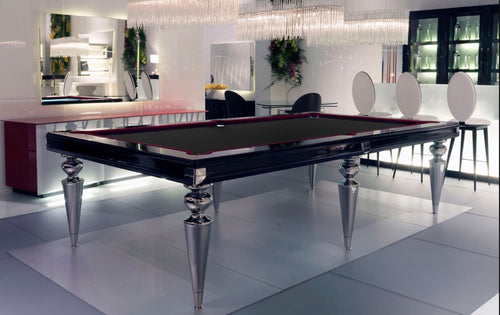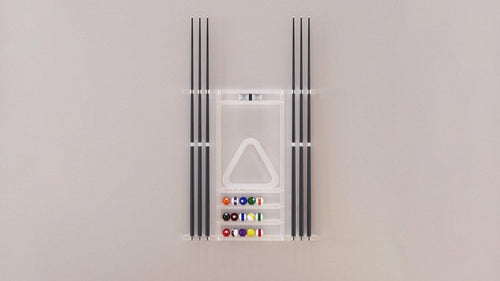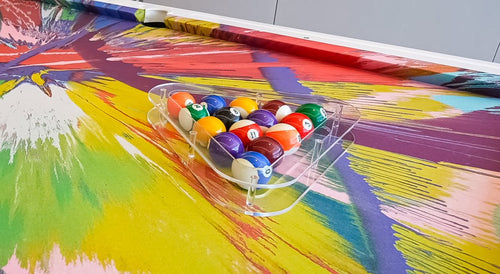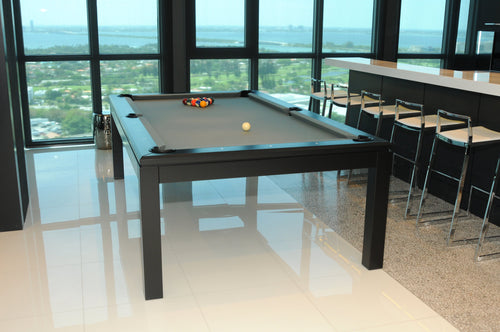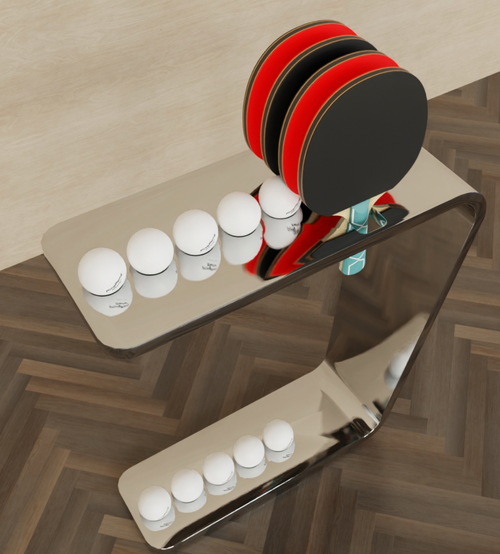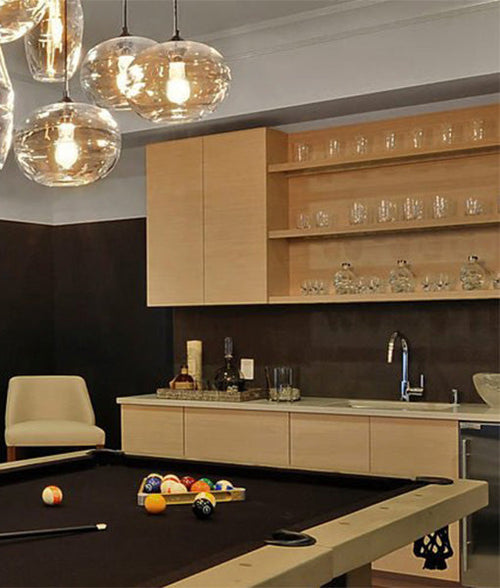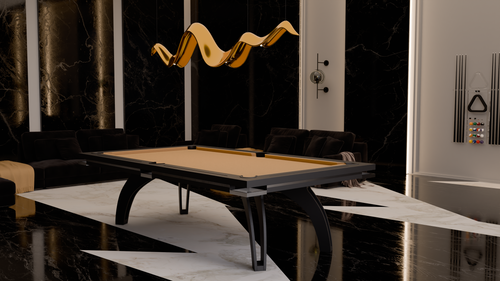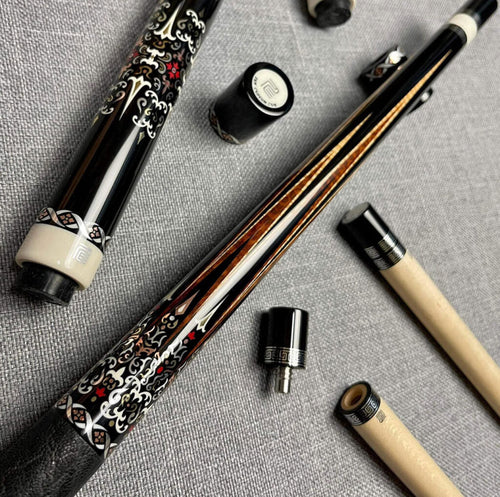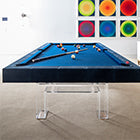Enjoy our modern designs
Estimated Read Time: 5 mins | Updated:
Billiards and pool are both beloved cue sports enjoyed by players of all skill levels. While often used interchangeably, they differ in equipment, table design, and game rules. Understanding these differences can help you choose the perfect game for your next match—or spark a deeper appreciation for both.
Table of Contents
- Defining the Terms
- Table Features and Size
- Balls and Gameplay
- Cue Sticks
- Game Style and Strategy
- Which Game Should You Play?
- Explore Our Billiards and Pool Tables
- Conclusion and Contact
Defining the Terms
Billiards: Traditionally, “billiards” refers to all cue sports, encompassing carom billiards, pool, and snooker. In its most classic form, however, billiards (also called carom billiards) is played on a pocketless table using three balls: two cue balls and one red ball.
Pool: Pool is a cue sport played on a pocketed table. The most common variations include eight-ball, nine-ball, and ten-ball, each involving a different set of rules and target balls.
Table Features and Size
Billiards Tables: Classic billiards tables do not have pockets. Players rely on rebounds (caroms) off the cushions to score, and these tables are often sized specifically for carom play.
Pool Tables: Pool tables come with six pockets (four corners and two sides) and vary in length (common sizes include 7 ft, 8 ft, or 9 ft). Both billiards and pool tables typically use a slate base covered in felt, but their dimensions and cushion designs differ based on the game.
Balls and Gameplay
Billiards (Carom): Uses three balls—two cue balls and one red ball. Players earn points (caroms) by striking their cue ball so it contacts the other two balls in succession, requiring precise angles and rebounds.
Pool: Games like eight-ball use 15 colored balls (stripes and solids) plus a cue ball. In eight-ball, each player aims to sink their group of balls before legally pocketing the eight-ball to win.
Cue Sticks
Billiards Cues: Often shorter and feature a smaller tip for precision and finesse.
Pool Cues: Generally longer with a larger tip, allowing players to generate more power when pocketing balls.
Game Style and Strategy
Billiards (Finesse and Strategy): A slower-paced game that emphasizes precise control and multi-cushion rebounds. Players often plan several moves ahead to maximize scoring opportunities.
Pool (Fast-Paced Action): Involves pocketing balls into any of the six pockets. Generally faster-paced and rewards shot-making skills and quick offensive play.
Which Game Should You Play?
Billiards: Ideal if you enjoy strategic, precision-based gameplay where careful planning and finesse are crucial.
Pool: A great option for those who prefer a more social, pocket-driven style of play with plenty of action.
Explore Our Billiards and Pool Tables
For a variety of billiards and pool table designs, browse our collection on Pool Table Portfolio or discover our selection at Black Label Billiards. From timeless classics to modern styles, we offer a wide range of options to complement any space or aesthetic.
Conclusion and Contact
The difference between billiards and pool lies largely in the presence (or absence) of pockets, table size, and scoring methods. Whether you’re drawn to the precision of carom billiards or the fast-paced fun of pool, these cue sports promise endless enjoyment.
If you have any questions or would like an estimate on a custom pool table, feel free to contact us. Our experts are ready to help you find the perfect table for your style and needs.
Ready to Upgrade Your Game Room?
Explore our premium selections today and take your enjoyment of cue sports to the next level.
Browse Luxury TablesNeed help choosing? Contact us for free advice!


